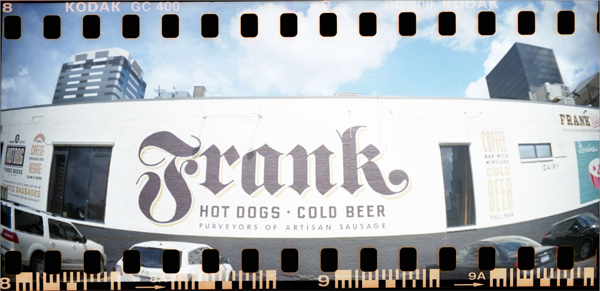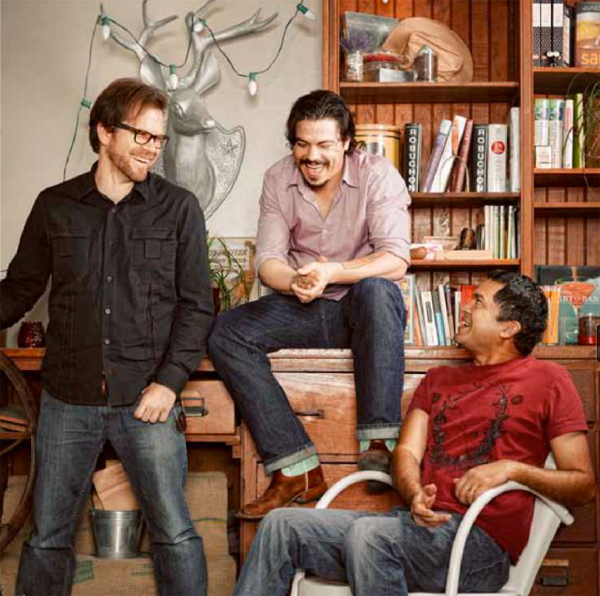Live Bands On Film: 'Web Sessions' with Austin's All-Analog Transistor Six
Austin's Transistor Six recreates the authentic, intimate feel of the BBC's Peel Sessions by capturing almost-famous bands live on still and Super 8 film and delivering performance and interview clips in online "web sessions." Here's a behind-the-music look at Transistor Six, its founders, its business model, its gear, and its analog ambitions.
It's all happening for Transistor Six, an Austin, Texas-based new media company that's bringing back the best of the 1970s (tangible, celluloid film, of course, in case you were thinking bellbottoms) to the music business. T6 invites artists into their studio to record a few live songs and do an interview, and they capture it all on film "for a truly warm analog experience."
Advertisers then sponsor the online premieres of the digitized sessions on Facebook and other social media platforms. All of this ties in with surprise "pop-up premieres" and invite-only shows that keep the most ardent hipsters on their toes (and cash in artists' pockets, where it belongs).
Transistor Six co-founder Cory Llewellyn explains their history, starting with his background handling marketing and new media for music industry giants like Def Jam, Sony, Polygram, and Epic Records in Los Angeles. During this time, he worked with bands on the leading edge of web video, recording web sessions sponsored by corporations like AOL and Hot Topic.
It was an emerging trend at the time, but he remembers the sessions as being "all kind of the same. Musicians were jammed into a room and folks recorded them with digital cameras. Nothing really interesting was happening." To him, the formulaic format was uninspired. Yet the seed of the web sessions idea—capturing live music as it happened and letting the experience reach would-be fans via the Internet—resonated strongly with him.
The Web Sessions
Llewellyn was reminded of the Peel Sessions, a well-loved BBC radio show where bands performed just one song for host John Peel. The potential web iteration of that concept intrigued him, and he imagined the end product would be more appealing if the production were styled in a throwback manner, with genuine analog effort steeped into the production. Llewellyn knew that the right type of video could captivate viewers. "One random day I was going through Led Zeppelin footage online," he recalls, "watching recordings done on Super 8, and I found myself watching entire sessions, not watching just for a second. They were so beautiful. There was something magical about them."
After moving to Austin, Texas, often dubbed the "live music capital of the world" (a moniker Llewellyn didn't really buy until he got down to a live band at a local bank), he realized that the scene was ripe for the type of marriage between analog and digital he envisioned. "Kind of an old school show, done on film. I've always been a fan of film and Super 8. I thought, ‘Wouldn't that be great in Austin?'"
Here he befriended Daniel Northcutt, the local mover and shaker who owned stalwart hot-dog-eatery-by-day/rockin'-whisky-joint-by-night Frank. One night during SXSW (Austin's renowned annual music, film, and interactive conference), Northcutt threw up a stage just outside the venue, and hosted an ad hoc Jack White show.

Llewellyn thought he'd found a kindred spirit, and told Northcutt, "Let's try to do something together, all analog." It made good sense: Both Llewellyn and Northcutt owned Super 8 film equipment, Frank had the space and the sound person, and Llewellyn had the connections to book acts. After bringing on a third partner, David Peris, a former Sony coworker of Llewellyn, to handle back end web design along with social media, Transistor Six was born.

The Transistor Six team, left to right: Cory Llewellyn, Daniel Northcutt, David Peris
Retro-Romantic
Many new media companies live by the motto "We want to do something that's never been done before." But the T6 approach inverts that mantra, trading "cutting edge" for "retro romantic," and "slick" for "dreamy." The resulting effect is both nostalgically beautiful and evocative of a time well before all concerts could be quickly captured on mobile phones or pocket point-and-shoots. T6 records bands playing strictly in analog, filming the sessions in Super 8, and doing a photo shoot on 110 film.
Weaving old-school effects into new-school production has a certain hipster cachet these days (see: Instagram, Hipstamatic, and so on), but Transistor Six doesn't cut corners creatively, or technically. "I get a lot of people asking me, ‘What kind of iPhone filter did you use? The Super 8 app?' No, I tell them, this is the real deal. I can't tell you how many bands will come through and try to look at the back of our cameras. It's completely alien to some young people."